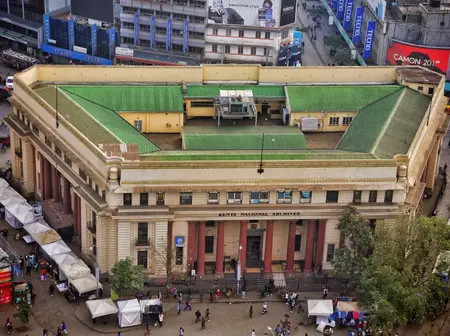Nairobi Governor Johnson Sakaja has defended his administration’s decision to remove business tents from the Central Business District (CBD).
Speaking during a radio interview on Wednesday, September 17, Sakaja—who has recently faced mounting criticism and even an impeachment bid—said the directive was aimed at restoring order in the city centre.
He noted that the uncontrolled spread of tents, especially those used to sell mobile phones, had turned into a nuisance and was ruining the visual appeal of the CBD.
“Everyone had set up ten tents, some selling phones and other items, without any structure. I prohibited this behaviour and made it clear, even to Cabinet Secretary Aden Duale, that there must be proper organisation,” Sakaja explained.

Using the walkways near the Nairobi National Archives as an example of the city’s potential without tents, Sakaja said the county plans to set aside specific zones for those businesses.
He stressed that the intention is to prevent the CBD from turning into an open-air market, noting that the capital serves as a key representation of the nation.
“There must be order in the CBD, and we are doing so in all of the CBD because we can’t have a situation where the city looks like a market. It must give the aesthetic of a capital city,” he went on.
Business tents gained traction after the COVID-19 pandemic, but their rapid spread across the city centre drew criticism over both costs and impact.
Formal businesses paying rent in the CBD decried what they saw as unfair competition, while others raised concerns that the tents created security risks.
This isn’t Sakaja’s first tough call on informal trade. Earlier this year, he barred hawkers from operating along major roads, such as Moi Avenue, Haile Selassie Avenue, Kenneth Matiba Road, Latema Road, Ronald Ngala Street, Mfangano Street, Hakati Road, and River Road. Instead, he directed them to designated backstreets linking Tom Mboya Street and Kirinyaga Road.
The county has also stepped up efforts to clean up Nairobi’s image, including a crackdown on illegal billboards across key avenues.
Separately, in April 2021, the Nairobi Metropolitan Service (NMS) kicked off the construction of new pedestrian walkways and cycling lanes to ease congestion.
The project was made possible through Ksh8.7 billion in funding from the U.S. government.

Leave a Reply